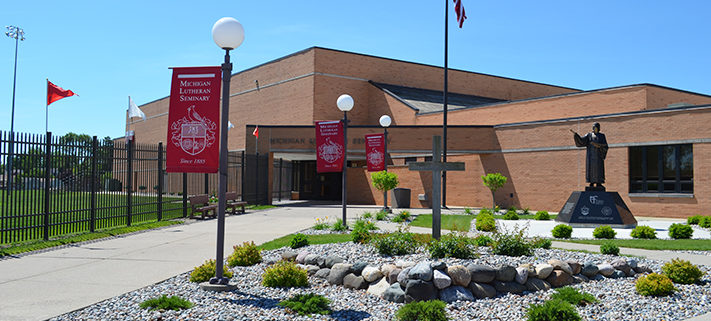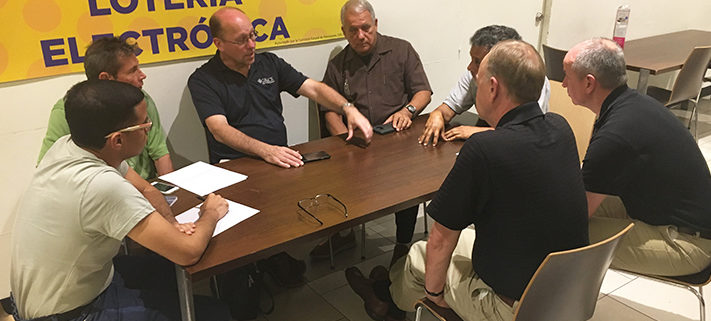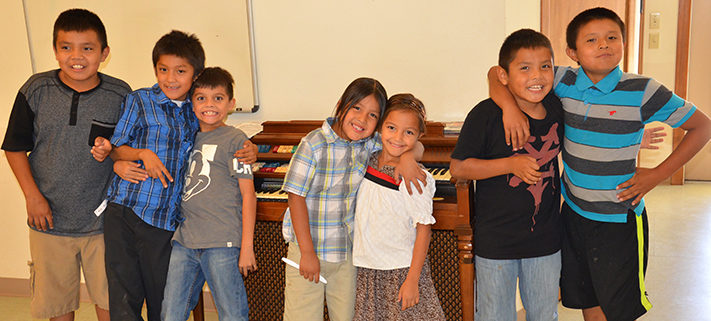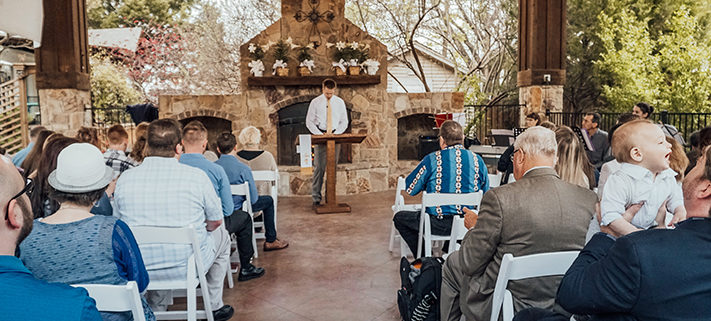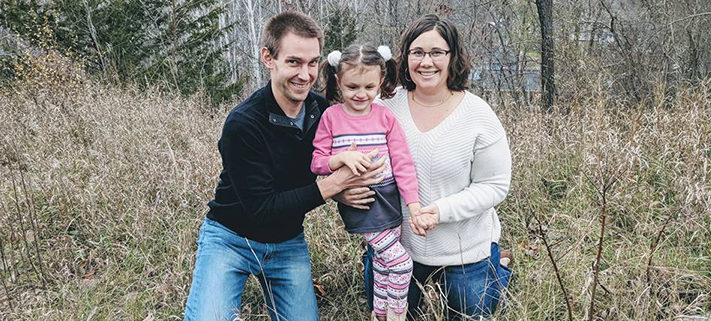After worrying for years that she was carrying sins from her family’s past, a woman learns of God’s full and free forgiveness.
Rachel Hartman
Anny Ally spent some of her early years in an orphanage in Rwanda. Today she lives in Ottawa, Ontario, Canada, but she has also had another drastic change in her life. After being born into a Muslim family, Ally is now a Christian who clings to the comfort found in Jesus’ words. She says “For some reason, God has given me a different life, and I don’t want to take that life for granted. I just want to serve him.”
Starting out in Africa
“I grew up in Rwanda, and I lived with my mom and dad,” Ally recalls. Both of her parents, as well as her surrounding family members, were Muslim.
In 1994, when Ally was still a young girl, about 800,000 Rwandans were killed in a span of one hundred days. Both of Ally’s parents died during the genocide. “I ended up going to the orphanage home,” says Ally. The place was called Noel de Nyundo.
Ally stayed at the orphanage until she was ten years old. Then she left with a woman who took her to the neighboring country of Uganda, where she ended up in a refugee camp.
“I grew up considering myself Muslim,” she says. She read the Koran and studied Islam since her parents had been Muslim and she felt she should learn about it.
Ally also visited churches while in Uganda. At one, she found people inside praying for others. “The pastor said everyone had a problem, and they could pray for you—if you have a problem, that’s going to solve it,” she remembers. “I was 14, and the pastor started praying for me. Everyone went down to pray, and he reached for me and pushed my head forward. He told me I had demons.”
The incident left Ally wondering why she had demons inside of her. Familiar with a common teaching that children can end up paying for the wrongs of their parents, Ally worried about her family’s past. “In Africa they say if parents do something, it comes back through the children,” Ally says. “My parents died when I was young, so I didn’t know what they had done.”
Another church she attended had members who appeared to speak in tongues. It seemed everyone there had something special, except Ally. “I said, ‘Okay, maybe God doesn’t like me. Everyone has a gift—some had a gift of a spirit, others can talk in tongues—and I have nothing at all.”
The event left her anxious. “When I was in Africa, I thought that sins were not the same,” she says. “There were some that God forgives and some that God cannot forgive.” She was taught that seemingly small sins, such as lying, could be forgiven. More serious sins, such as murder, were said to be unforgivable.
That teaching coupled with the idea of children paying for the wrongs of the parents left Ally wondering if there was something in her, or her past, that God couldn’t forgive. “I thought, ‘Has my family done something that is coming back to me?’ ”
These experiences left her feeling alone and helpless. “I quit going to church,” she says. “I was kind of lost.”
Living in Canada
A private sponsorship made it possible for Ally to move to Canada at the age of 17. She settled in Ottawa and had two daughters. But it was hard to go to church. “I tried to go to the mosque to pray, but I would just sit there,” she says. “Then I decided I would stay in my house with my kids and thought if God can hear, he’ll hear me at my house.”
One day, shortly after her second daughter was born, it was really cold outside and Ally felt depressed. To cheer up, she took her girls for a walk. While out, she passed St. Paul’s Lutheran Church, which was across from her house.
Out of curiosity, Ally went inside. The service had ended, but a woman still there. She told Ally to go downstairs for coffee. “I thought, Why am I going here? I was just taking a walk,” says Ally.
She headed downstairs and sat down with her girls. “A lady came next to me and she didn’t move; she just asked my name.” says Ally. “Then she told me, ‘I think you should come to church and see how we are. How about you come next week?’ ”
The lady took Ally’s phone number and called her. “She talked to me like she knew me a long time ago,” recalls Ally. She asked Ally if she was planning to come to church on Sunday, and Ally said yes.
Ally went to worship that week, but she wanted to know about the church before continuing much further. She started studying the Bible with one of the pastors
What she found was a message of comfort. “When it comes to the Word of God, it assured me that God died for all our sins. We are human and not perfect; we do sin, but that doesn’t mean God is angry with us. He always loves us,” says Ally. “Since Jesus died for me and my sin, I shouldn’t worry. Now I get to serve him.”
A part of God’s family
Ally now looks forward to going to church on Sunday, and so do her girls. In addition to hearing God’s Word, Ally treasures the community she’s found there. “Everyone is welcoming—it doesn’t matter who you are, everyone is so nice,” says Ally. “It makes you feel that you are a part of something, like you belong.”
She has grown especially close to the woman who first invited her to church. “She calls me her daughter and has become like a grandmother to my two girls. God put her into our lives.”
And while Ally is thankful to be where she is today, she has not forgotten her past. She takes trips back to Africa and uses the opportunity to help others in need. She always takes something to hand out at a camp or orphanage that is low on supplies.
At the end of 2017, St. Paul helped pay for her to visit a refugee camp in Uganda. She went to a place called Imvepi, which has been receiving refugees from Sudan. “Before it used to be a few children, but people are coming from Sudan so there are a lot of kids,” explains Ally.
While there, she handed out Christian material from WELS Multi-Language Publications, toothbrushes, and soap. She also held a Christmas party. “I was able to feed seven hundred children,” she says. “Everyone was so happy and loved the gifts. It made me very happy that I was able to do that. I remember being in the orphanage and wanting someone to give me something.”
Ally also met a girl who had walked three hours to the camp to pick up food and take it back to her home. Says Ally, “I helped her to her house. I visited with her family and told them how I found Jesus.”
Rachel Hartman and her husband, Missionary Michael Hartman, serve in León, Mexico.
Did you know that “Confessions of faith” has been a series in Forward in Christ for ten years? Started in April 2008 to share stories of peoples’ journeys of faith, this series also helps teach the differences between the teachings of WELS and other religions and gives us all the opportunity to rejoice in the work of the Holy Spirit. What do you appreciate most about this series? Any favorite stories? Share your thoughts with us at [email protected].
Do you have a manuscript, idea, or story from your own life you’d like to share for use in Forward in Christ or on wels.net? Use our online form to share it to our editorial office for consideration.
Get inspirational stories, spiritual help, and synod news from Forward in Christ every month. Print and digital subscriptions are available from Northwestern Publishing House.
Author: Rachel Hartman
Volume 105, Number 5
Issue: May 2018
Copyrighted by WELS Forward in Christ © 2021
Forward in Christ grants permission for any original article (not a reprint) to be printed for use in a WELS church, school, or organization, provided that it is distributed free and indicate Forward in Christ as the source. Images may not be reproduced except in the context of its article. Contact us

